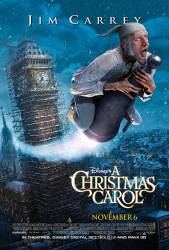
Question: Can someone please explains this? When Marley visits Scrooge, it's Christmas Eve. Marley tells Scrooge that he will be haunted by three ghosts. The first ghost would appear tomorrow when the bell tolls one. Meaning that the first ghost would appear on Christmas day. The second would appear the next night at the same hour. December 26th. And the final spirit would appear the following night at twelve o'clock. December 27th. When Scrooge is talking to the boy outside his window after the visitations, the boy tells him it's Christmas Day.
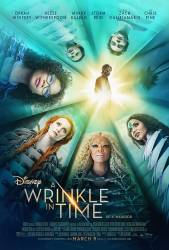
Question: Why didn't Mrs Whatsit turn into a winged centaur as she did in the book? What made them alter the magic creature into a living leaf?
Answer: Like any other such change from the source material, it's just artistic license.
Answer: The biggest critical complaint about this film is that director Ava DuVernay and her screenwriters essentially gutted Madeleine L'Engle's award-winning children's book and turned it into nothing more than Disneyesque eye candy, discarding many important elements of L'Engle's story and arbitrarily refitting it with lightweight (and boring) motivational platitudes. In other words, DuVernay made the movie her soapbox for "social messaging" and tossed out much of the wondrous (and even miraculous) detail that made L'Engle's original book a huge success. Consequently, this movie was a colossal financial failure.
Interestingly, Disney had adapted this story for the screen before (in 2004), and the earlier version did include the flying centaur (albeit a bad CGI rendering). Unfortunately, the 2004 version was also a box-office failure for Disney, and for the same reason as the 2018 remake: Disney removed the magical and spiritual qualities that gave L'Engle's original story its depth.
Disney's previous adaptation was released in 2003 as a TV movie, so it wasn't a "box-office failure", it was just a terrible movie.
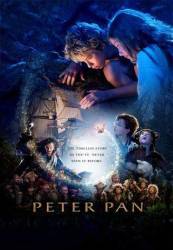
Question: If Peter Pan says that the Lost Boys fell out of their prams and weren't claimed in 7 days so they were sent to Neverland. This would make them infants. Why then are they like 7-12 years old if Neverland doesn't make you age?
Answer: It's not that you never age, it's that you never grow up, i.e. pass into puberty and become an adult.
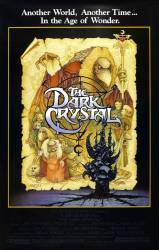
Question: When Jen looks at the shard, he sees in image of a Skeksis striking the crystal, but why when the beings of light appear, do they say that they were the ones responsible for shattering it?
Answer: The skeksis and the beings of light are the same, each being a different side (good and bad) therefore it was there evil side (the skeksis) that struck the crystal.
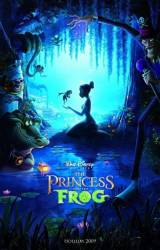
Question: How did Tiana know that Naveen was going to marry Lottie? We don't find out until later that Lottie has to kiss Naveen in order for the spell to be broken and sure Lottie was attracted to Naveen but still, marriage wasn't mentioned so how did Tiana know? Did I miss something?
Answer: Naveen told Tiana about his plan to marry Lottie once they arrived in the swamp. After revealing that he's been cut off by his parents, he explains that he plans to regain his wealth by marrying her so that he'll inherit her father's prosperity.
Answer: Mama Odie tells Tiana and Naveen that Naveen must kiss a true princess in order to break the spell. Lottie is the princess of the Mardi gras parade so that would make her a princess and that would make it necessary for her to kiss Naveen and break the spell.
Tiana knew that Naveen was going to marry Lottie because Naveen tells her when they are running away from danger in the bayou. Naveen says 'when I marry Miss Charlotte LaBouff...' in an attempt to explain to Tiana how he intends to be rich again.
Naveen wasn't looking to marry a princess, just a "little honey whose daddy got dough", as said by the Shadow Man.
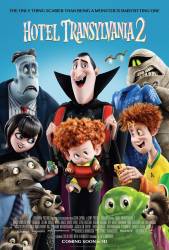
Question: At the very ending, now that Dennis is a vampire, can the sun harm him even if he is the son of a human and a vampire?
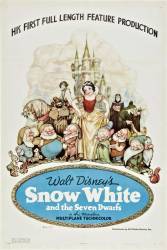
Question: When the animals go to tell the dwarves about the witch trying to kill Snow White, why is Grumpy all of a sudden concerned about her? He's the first one to say that they have to go rescue her and then is leading them back to the cottage, although up to that point he hasn't liked her at all.

Question: If the island sinks underwater at regular intervals, then what happens to the tiny elephants, giant bees, etc (and the whole ecosystem) while the island is underwater?
Answer: There is a deleted scene on the DVD/Bluray where they attempt to give an explanation. Kailani asks "What happens to the animals when the island sinks? They can't all die!". Alexander replies "Even the mammals develop quasi-amphibian characteristics. They just burrow below the ground's surface and absorb the oxygen through their skin."
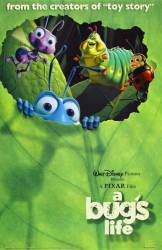
Question: At the end of the movie, at one point, Francis loses the stick bug. While looking for him, he says, "I'm right here, the only stick with eyeballs!" or something like that. Can he actually be found on the screen or, for comedic purposes, was it impossible to find him?
Answer: For comedic purposes, it's impossible to find him.
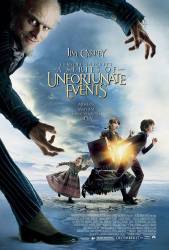
Question: As we know, the magnifying glass in Olaf's tower started the Baudelaire fire. This is the same tool that Klaus uses to burn up the marriage certificate. If the magnifying glass was powerful enough to cause the Baudelaire mansion to burst into flames, which was 37 blocks away, why didn't the stage burst into flames as well?
Answer: A magnifying glass concentrates all the light that goes through it at its focal point, and it is this focal point that needs to be placed on the object which one wants to set on fire. The distance of the focal point to the lens depends on the magnifying glass characteristics, and it is more than likely that Count Olaf chose a glass where the focal point would be situated exactly "37 blocks" away from his house, that is, at the Baudelaire's mansion. When trying to set on fire an object much, much closer, the glass would concentrate much, much less energy, and would only be able to set on fire easily burnt objects, such as thin paper.
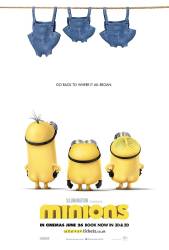
Question: It is 1968, and in the trailer it says "42 B.G" which 42 years later would be 2010, which is the first film. But the ending of this movie implies that the minions have been working for Gru since he was a child. So why is "42 years Before Gru"?
Chosen answer: The writers wanted to keep Gru's cameo at the end of the film a secret for the fans of the franchise. So, saying "42 Years B.G" (before Gru) in the trailer doesn't give the surprise away.
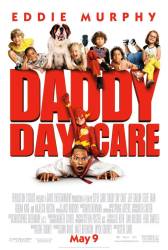
Question: Why, on the cover of the video and DVD of Daddy Day Care, is there a dog when there is no dog in the film?
Answer: This dog belongs to the Klingon kid - he brings it in when it is Pet Day.

Question: Why does the Colonel let Spirit escape at the end of the movie? I know it's meant to be a sign of respect. But why would they respect each other? In my opinion they have no reasons to have mutual respect.
Answer: Because the colonel saw that Spirit and Little Creek had a strong bond, and how hard Spirit had worked for his freedom.
Logically, it never should've started. All of this trouble for a single horse while there's important military duties and concerns should've never really happened. You could argue that it was to chase Little Creek, but the Colonel never regards him. It was all for Spirit.
Answer: Because he probably gave up.
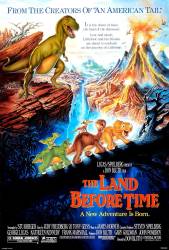
Question: How did Littlefoot, Ducky, Petire, and Spike get out of the tar?
Answer: We are not shown how they got out of the tar.
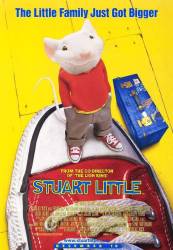
Question: I've never adopted kids before so that's why I'm asking this question; When Stuart is being adopted, I noticed that on his papers, the parents were listed as Mr. And Mrs. Little. My question is, why aren't their first names on there? George's first name was, so why weren't theirs on there as well? Is that a mistake or is it common?
Answer: I wouldn't call it a "mistake" as the movie did that on purpose for both a gag and an emphasis on Stuart becoming a Little. This is definitely not practice for actually adopting children. You must put your first name on the paperwork.
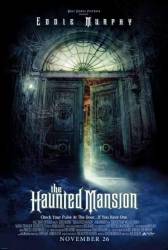
Question: Near the end of the movie, Edward Gracey says to Ramsley that the letter is written in Elizabeth's hand. If Mr. Gracey knew what Elizabeth's writing looks like, wouldn't he have realized that the fake letter Ramsley wrote was in fact fake and not from Elizabeth?
Chosen answer: Considering Ramsley's intelligence, he would have been able to make "couterfeit" handwriting.
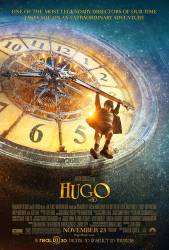
Question: Why does the Station Inspector chase children who are on their own and threaten to send them to an Orphanage? Is that what it was like in the 1930s?
Answer: He's not making it a point to chase down random children - he's like a security officer at an airport. It's his job to apprehend thieves and troublemakers and keep the station safe, and he only threatens to send children to the orphanage if they don't have parents for him to return them to. Also, it's implied once he finally apprehends Hugo that his particular harshness toward orphans (and most of his character flaws in general) is due to apparently having been one himself. He spells out the kinds of lessons he was forced to learn by growing up without a family, explaining how he became so cold, bitter, and antisocial.
Chosen answer: It is more than likely an early form of our modern day child protection. Just as today if children are found to be at risk, they can be and are taken away by social services and put into foster care. In the film, orphans may have been seen as a plague in an area that attracts posh looking people in stark contrast to urchins in rags eating out of bins. Most European orphanages/care homes/hospices/whatever you want to call them at that time were no better than anything depicted in Charles Dickens 50 years previously.
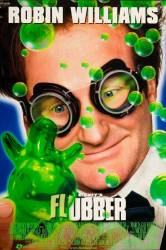
Question: Why did Wilson drop some white bead things to the floor at Sara's wedding? In order to let Phillip slide on them? But Wilson knew Phillip wouldn't show up at the wedding.
Chosen answer: It was rice and he just simply dumped them on the floor because he knew he wouldn't be needing it after the wedding to throw at the bride and groom because the Professor didn't show up.
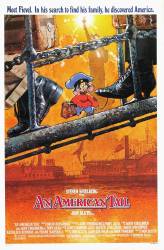

Answer: It's basically the magic of Christmas. While, to Scrooge, three full days have passed, in reality his whole experience took place in a single night, allowing the reformed Scrooge to enjoy Christmas Day.
Tailkinker ★